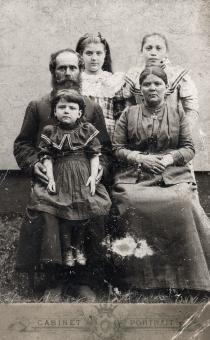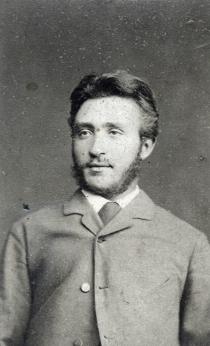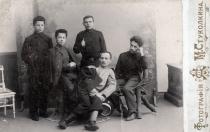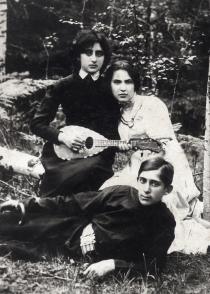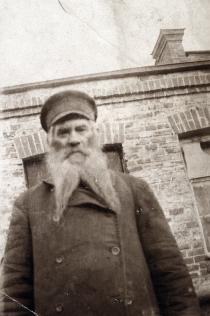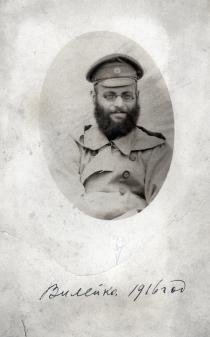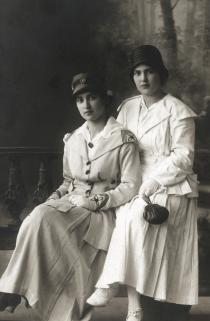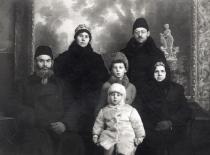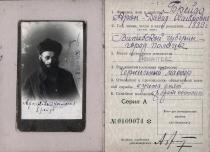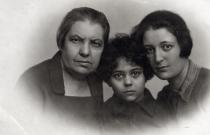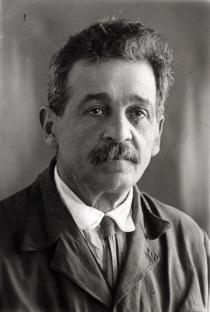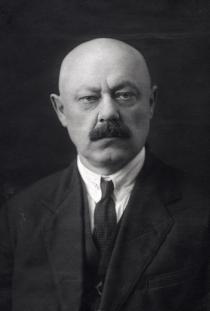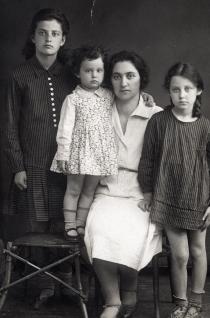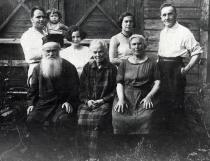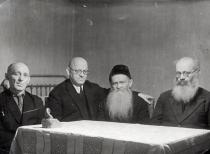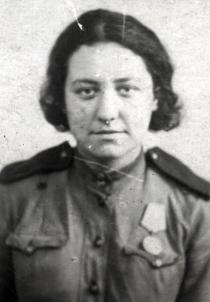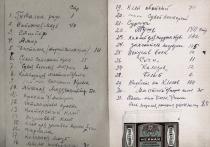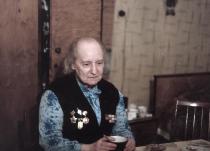My uncle, father's brother, Grigory Breido.
He is 49 years old here. Grigory [Girsh] Yefimovich worked either as a lathe operator or as a metalworker apprentice at "Arsenal" plant. Later he acquired the highest class qualification in this profession.
He was a social democrat [Mensheviks wing], "Arsenal" delegate to the Duma; held the position of Deputy Chairman of the Central Military-Industrial Committee in the Duma.
They were great friends with Alliluyev, Stalin's wife's brother, they were neighbors. He was a "boevik" , accepted stocks of weapons together with the famous revolutionary Krasin.
He was in prison more than once, before and after the Revolution.
He married his cousin Emma Lvovna Galyorkina, Leiba Galyorkin's daughter.
They had three children: Victor, born in 1910, Ima, born in 1912, and Tsylya, born in 1914.
After the Revolution Grigory Breido became disappointed in the changes that took place and together with his friend Iosif Blumenfeld dropped out of the Party, left for his wife's motherland and worked at the glass plant in Novka.
He survived miraculously the pogrom that happened on the plant, as he was in Petrograd on business together with his uncle Lipa, the plant manager.
Grigory's wife and children were saved by the Russian nanny, who hid them at her relatives' place.
In 1931 when Grigory's parents and brothers were exiled from Leningrad, he was included by his friend-revolutionary, who held an important position at that time, into the delegation which was to visit the Chelyabinsky tractor plant [CTZ] in Chelyabinsk in the Urals.
That helped him to avoid further persecution. He organized a mechanical workshop at the CTZ in Chelyabinsk.
However, it did not save him from the 1937 "repressions campaign", when he was arrested and exiled to the camps near Solikamsk as a "national enemy".
It is not inconceivable that Stalin "got him" for his friendship with Alliluyev, because no solicitation on the part of the old revolutionaries worked.
He was jailed based on Article 58 [political counter-revolution] and he died in the camps in 1944.
In 1954 he was rehabilitated posthumously. His wife and children were not persecuted and stayed in Leningrad.

